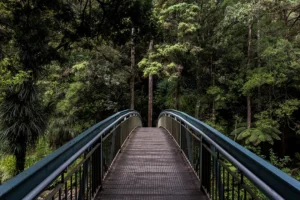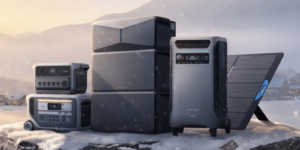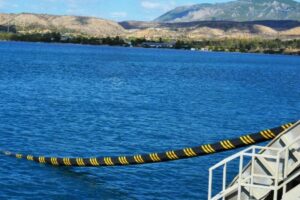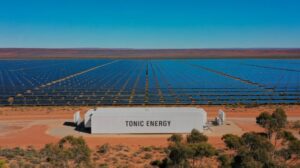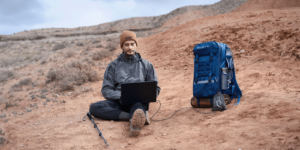Hydrogen-derived e-methane import terminal moves a step closer to FID after exemption
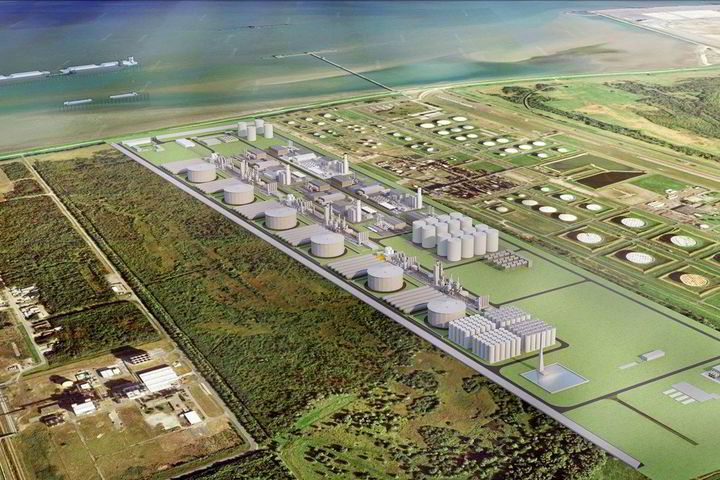
Tree Energy Solutions (TES), which is developing a massive liquefied natural gas (LNG) import terminal at Wilhelmshaven in Germany with a view to later producing and importing e-methane made from green hydrogen, has been granted an exemption from open market regulations.
TES — which was characterised as a “subsidy harvester” by independent energy analyst and investor Michael Liebreich last year on account of its subsidy-reliant business model —is now a step closer to taking a final investment decision (FID) on Wilhelmshaven Green Energy Hub as a result, the company said.
The 20-year exemption from Germany’s third-party access and tariff regulation, granted by German regulator BNetzA, will allow TES to market up to 90% of the capacity at its proposed Wilhelmshaven Green Energy Hub (ie, the amount of gas it can unload from a ship, store and regasify for delivery to market) on a long-term basis and at “pre-determined” tariffs.
The agreement with BNetzA, which has already been approved by the EU, is critical to the project achieving FID later this year, the company explained to Hydrogen Insight.
“This is a condition for moving ahead with FID as long-term contracts create predictable cashflows,” said a spokesperson for TES. “Also for customers, predictable tariffs can be desirable.”
However, BNetzA is still set to govern the process — albeit via a bespoke solution — and all capacity allocation mechanisms and tariff-setting at the plant is subject to regulatory approval.
Article continues below the advert
“The exemption means DGGEV [TES subsidiary Deutsche Grüngas und Energieversorgung, which is managing gas marketing] can market the capacity of the terminal under specific rules proposed to and agreed with BNetzA,” the TES spokesperson said. “These will be published shortly on BNetzA website.”
TES, which counts Australian green hydrogen developer Fortescue among its equity partners, originally conceived Wilhelmshaven as an e-LNG terminal, in which hydrogen is converted to e-methane, liquefied for export, and then sold on to customers with the aim of capturing the carbon molecule from CH4 at the point of use and recycling it back in to the process.
However, with German gas prices sky-rocketing in the aftermath of Russia’s invasion of Ukraine in February 2022, the company was asked by the German government to integrate conventional LNG imports into its plans, and it now plans to import fossil gas from 2025, gradually shifting to e-methane imports from 2027-28.
In April 2022, the company invited gas importers to secure long-term tolling agreements for most of the capacity at the planned 15-billion-cubic-meters-per-year terminal, which have since been allocated to “several customers”, in “a transparent and non-discriminatory manner”, the TES spokesperson said.
When the so-called “open season” ended in June 2022, TES noted that 70% of companies expressing an interest in booking capacity also said they were interested in moving to e-methane imports by 2043.
The company then launched a capacity booking round for the remaining 3.4 billion cubic metres (around 22% of the plant’s total capacity) in October this year, on a “first committed, first served basis”.
Typically, LNG receiving terminals must ensure that all or most of their capacity is available on the open market, via a transparent capacity booking mechanism, and that tariffs are both set transparently and applied in a non-discriminatory way. They must also ensure that any long-term booked capacity that is not used is available to the open market (known as secondary capacity).
However, TES would not be the first LNG terminal to receive an exemption from these rules, which are derived from EU-level legislation — in fact, six are now subject to exemption, three of which are in the UK, and granted before the UK left the EU.
TES came in for criticism from Liebreich last year after the company’s CEO, Marco Alverà, appeared on his podcast, Cleaning Up, in which Alverà admitted that TES’s business model is heavily dependent on “layering” various different subsidies.
In addition to its e-methane export ambitions, TES is planning to build a 500MW electrolyser at Wilhelmshaven with German utility EWE, and also has a plan to produce green hydrogen in Quebec, using over 1GW of renewable power, for use domestically.
Among the different subsidies TES is in line to receive are those for renewables production and carbon capture, as well as for green hydrogen production in both North America and Europe.
Liebreich also took issue with the energy losses — and costs — associated with producing and exporting methane made from green hydrogen, as well as the credibility of TES’s claims that its e-methane is “carbon-neutral”.
CORRECTION: an earlier version of this article stated that TES plans to use fossil-derived carbon dioxide to make e-methane at a planned e-methane plant in Texas. This was based on out-dated information, and TES has since said that the CO2 would be biogenic.
